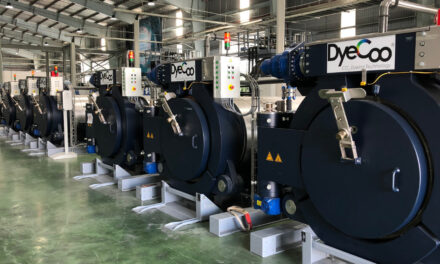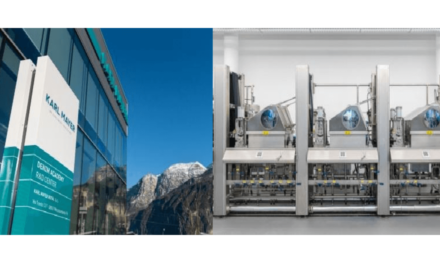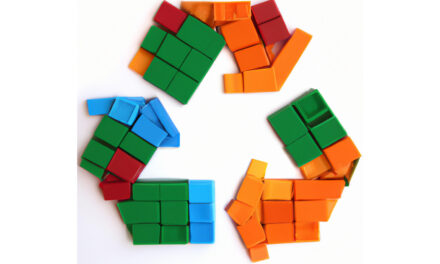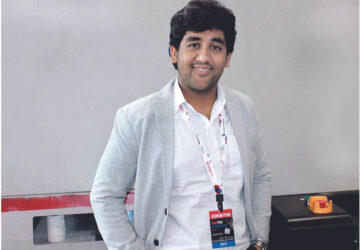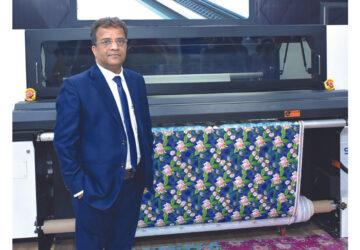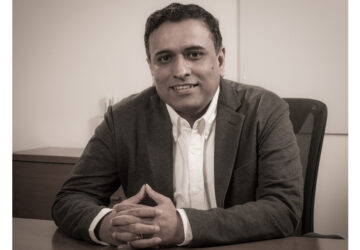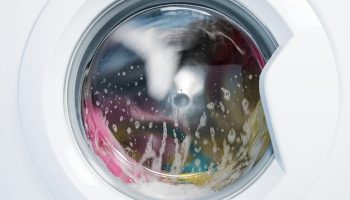 It happens a million times every second, worldwide. Yet for many people it is happening in secret. “With every wash, textiles shed microfibres. But while cotton, as an organic material, degrades almost completely, synthetic fibres persist in the environment much longer,” explains Heather Ball, responsible for textile testing at TUV Rheinland in Western Europe. Only a few days ago, researchers from the National Oceanography Centre (NOC) in Great Britain published their latest measurements of micro plastics in the Atlantic Ocean. The experts assume that an estimated twelve to 21 million tonnes of waste are found in the upper layers of water in the first 200 meters alone. This also includes fibres shed from synthetically produced fibres. “The problem has long been recognized by experts. The microfibres in the wastewater are not completely filtered out by sewage treatment plants and thus end up in the waters or as sewage sludge on the fields”.
It happens a million times every second, worldwide. Yet for many people it is happening in secret. “With every wash, textiles shed microfibres. But while cotton, as an organic material, degrades almost completely, synthetic fibres persist in the environment much longer,” explains Heather Ball, responsible for textile testing at TUV Rheinland in Western Europe. Only a few days ago, researchers from the National Oceanography Centre (NOC) in Great Britain published their latest measurements of micro plastics in the Atlantic Ocean. The experts assume that an estimated twelve to 21 million tonnes of waste are found in the upper layers of water in the first 200 meters alone. This also includes fibres shed from synthetically produced fibres. “The problem has long been recognized by experts. The microfibres in the wastewater are not completely filtered out by sewage treatment plants and thus end up in the waters or as sewage sludge on the fields”.
TUV Rheinland receives recognition
TUV Rheinland has now taken an important step in Asia to counteract this environmental impact. In June 2020, the Microfibre Consortium (TMC) approved the technical service provider’s textile testing laboratories in Shenzhen and Shanghai to carry out tests for TMC member organizations. The aim is to quantify fibre release from fabrics during domestic laundering. A commercial roll out will follow. Mickey Yu, responsible for textile testing at TUV Rheinland in Greater China: “In this way, TUV Rheinland is making an important contribution to reducing fibre fragmentation throughout the clothing supply chain”.
The aim: reducing fibre fragementation
The microfibre consortium TMC was founded in November 2018 and today has 40 members from the outdoor, sports, high street, luxury fashion and home textiles sectors with a total turnover of over 250 billion euros. TMC has a rapidly growing network of research institutes and associated companies from all over the world and facilitates the development of practical solutions to reduce fibre fragmentation and contamination for the textile industry. “As an approved test house for TMC members, we can now support testing starting with textile manufacturing and throughout the entire product lifecycle to ensure sustainable product development,” says Heather Ball. Members range from apparel brands, retailers and manufacturers to research institutions and policy makers, all of whom are working on global, environmentally sustainable solutions.
 It happens a million times every second, worldwide. Yet for many people it is happening in secret. “With every wash, textiles shed microfibres. But while cotton, as an organic material, degrades almost completely, synthetic fibres persist in the environment much longer,” explains Heather Ball, responsible for textile testing at TUV Rheinland in Western Europe. Only a few days ago, researchers from the National Oceanography Centre (NOC) in Great Britain published their latest measurements of micro plastics in the Atlantic Ocean. The experts assume that an estimated twelve to 21 million tonnes of waste are found in the upper layers of water in the first 200 meters alone. This also includes fibres shed from synthetically produced fibres. “The problem has long been recognized by experts. The microfibres in the wastewater are not completely filtered out by sewage treatment plants and thus end up in the waters or as sewage sludge on the fields”.
It happens a million times every second, worldwide. Yet for many people it is happening in secret. “With every wash, textiles shed microfibres. But while cotton, as an organic material, degrades almost completely, synthetic fibres persist in the environment much longer,” explains Heather Ball, responsible for textile testing at TUV Rheinland in Western Europe. Only a few days ago, researchers from the National Oceanography Centre (NOC) in Great Britain published their latest measurements of micro plastics in the Atlantic Ocean. The experts assume that an estimated twelve to 21 million tonnes of waste are found in the upper layers of water in the first 200 meters alone. This also includes fibres shed from synthetically produced fibres. “The problem has long been recognized by experts. The microfibres in the wastewater are not completely filtered out by sewage treatment plants and thus end up in the waters or as sewage sludge on the fields”.

